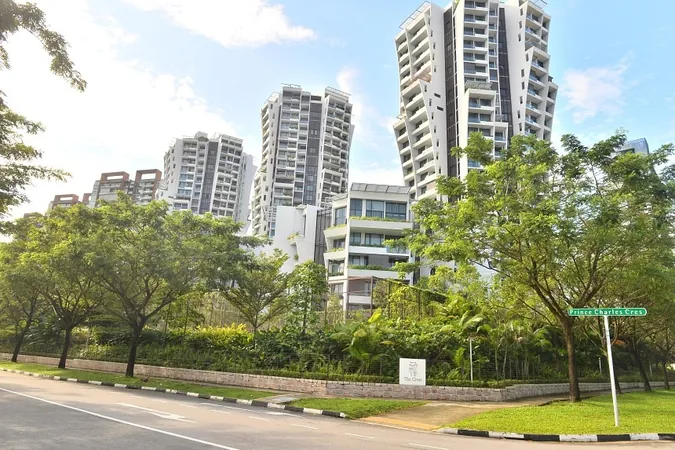
Supreme Court of Singapore Rules Against Developer in Controversial $1.2M Deposit Dispute
2024-11-06
Author: Sarah
Overview of the Case
In a landmark decision that could reshape the real estate landscape, the Supreme Court of Singapore recently ruled that a property developer cannot retain an unrealistic deposit of $1.2 million from a father-and-daughter duo who attempted to purchase a $1.9 million condominium. The situation unfolded when the buyers, Ms. Li Jialin and her father, Li Suinan, decided not to proceed with the transaction after initially paying a hefty deposit.
Background
This dramatic dispute stems from events that took place nearly five years prior, in December 2015, when the pair first showed interest in a unit at The Crest, located in the upscale Prince Charles Crescent area. By March 2018, after significant delays in making required progress payments, the developer, Wingcrown Investment—a subsidiary of the publicly listed Wing Tai Holdings—annulled the deal. The developer initially withheld the entire deposit, leading to a lengthy battle for a fair return.
Legal Proceedings
In a bid to salvage the situation, the developer lowered the forfeited sum to $380,000 following threats of legal action from the buyers. However, Ms. Li and Mr. Li were not satisfied and sought a full refund, arguing that the original $1.2 million was not a legitimate deposit but rather an unreasonable sum that should not be forfeited.
Court Rulings
In 2023, the High Court ruled in favor of the developer, granting it the right to retain a portion of the deposit. However, this decision was appealed, leading to a critical ruling by the Court of Appeal on November 6th. The apex court determined that the forfeited amount represented an excessive 63% of the total purchase price—far beyond what is typical for a deposit. Chief Justice Sundaresh Menon highlighted that an unreasonable deposit doesn't become acceptable merely due to its potential forfeiture.
Outcome
The Supreme Court's ruling means that the Li family will receive a total refund of approximately $743,176.11 after accounting for the remaining payments owed by the developer. Interestingly, the court also ordered Wingcrown to pay legal costs amounting to $60,000, a move that underscored the legal system's growing intolerance for excessive disbursements in real estate dealings.
Implications and Future Actions
In a twist to the tale, the pair's troubles did not end with the developer. They are currently pursuing a separate lawsuit against their prior property agent, Liu Siyu, who was sentenced to three years in prison for misappropriating nearly $600,000 of the funds entrusted to her. Both Ms. Liu and her superior, Ms. Neo Yoke Lai—who is a family friend of the Li family—are facing accusations of negligence and other fraudulent actions in this troubling real estate saga.
As this story unfolds, it poses significant questions about the fairness of property transactions and the obligations of agents involved. It also raises awareness among prospective buyers about the importance of understanding the contractual terms before engaging in high-stakes real estate deals. The ruling sets a crucial precedent that could alter how deposits are treated in future real estate contracts, providing a safeguard for buyers against unreasonable financial repercussions.





 Brasil (PT)
Brasil (PT)
 Canada (EN)
Canada (EN)
 Chile (ES)
Chile (ES)
 España (ES)
España (ES)
 France (FR)
France (FR)
 Hong Kong (EN)
Hong Kong (EN)
 Italia (IT)
Italia (IT)
 日本 (JA)
日本 (JA)
 Magyarország (HU)
Magyarország (HU)
 Norge (NO)
Norge (NO)
 Polska (PL)
Polska (PL)
 Schweiz (DE)
Schweiz (DE)
 Singapore (EN)
Singapore (EN)
 Sverige (SV)
Sverige (SV)
 Suomi (FI)
Suomi (FI)
 Türkiye (TR)
Türkiye (TR)